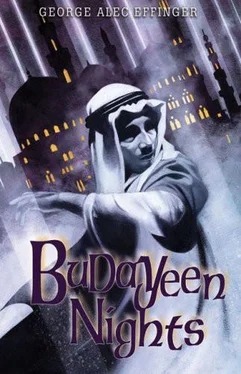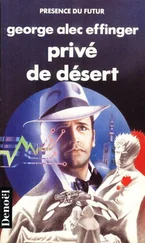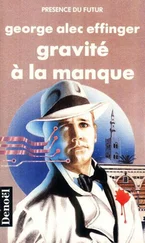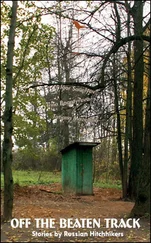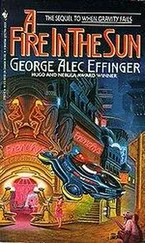That had been many years ago, and now the false Singapore wore the decaying garments that clothed all the rest of the city. The imitation Tiger Balm Gardens were uncared for — a tangle of brittle growths perverted from their natural forms by the arid climate, the heat, and the genius of the city itself. There was a tumbling-down replica of the Raffles Hotel, but there was no mystery there, merely the scorpions scuttling across the littered parquet. Street dining stalls after the Singapore fashion once dominated a narrow alley, which was now used as a public open-air toilet. The Breulen duke died during the construction of a likeness of Singapore’s Happy World; he was to have been buried beneath the joget platform, but his corpse was lost and never found again.
Following the street to the north, the strollers would reach the city’s quarter, where replicas of more familiar scenes from other lands dug at their buried homesickness. Ernst could see the brightly colored strings of lights go on, shining through the gaps between trees and buildings, diffused by mist and distance.
A canal ran parallel to the avenue toward the northern gates of the city. On its west bank were restaurants, bars, and casinos. Women danced naked in all of them. Diamonds were sold by old men in tents, and every building had a few young whores in the front window. There were areas set aside for dozens of different sports: bocci, tennis, and miniature golf facilities were the most popular. The large marketplace was lit by torches. All goods available within the city were also on sale here, at higher prices: fine leather goods; lace; gold and silverware; expensive woods made into furniture, alone or in combination with steel or plastic; perfumes; silks; rugs; every sort of luxury.
Floodlights went on, illuminating models of the ruins of Rome Staeca and Athens. The replica of the Schloss Briihl opened its gates, complete with exact representations of the ceiling paintings of Nicholas Stuber, and the furnishings in white and gold of the dining room, music room, and state bedroom upstairs. Other European landmarks were reproduced in bewildering combinations, but Ernst had only heard stories. He had never seen any of this. He preferred rather to spend his evenings dedicated to serious drinking.
“Allo again, Sidi Weinraub, man of mysterious desires,” whispered a thin voice.
“Allo to you, Kebap, youngest scoundrel, apprentice felon. My desires are not so hidden after all. It is only that you will not open your eyes to them. My most supreme desire, at this particular unpleasant moment, is to have you sunken to your lice-ridden ears in that vast ocean of sand.”
“That will happen to me, no doubt,” said the boy. “That is the sort of thing that occurs to people like me, who have chosen the life of the shadow, the way of the murmured delights. I shall probably pass a good portion of my life bound to creaking wooden racks; or with right wrist chained to left ankle I shall languish forgotten in damp cells beneath this municipal fantasy; or perhaps someone such as yourself will capture me on an aristocratic whim and compel me to violate my principles.”
Ernst laughed. “You are doubtless in error,” he said loudly, drunkenly. “You shall not be the violator of those principles. You will be the violatee.”
“Ah, yaa Sidi, I must take exception. One cannot make such forthright statements as that. One cannot anticipate the odd pleasures of the leisured class. You, yourself, are an example of that.”
“I was merely deceived,” said Ernst angrily.
“Of course, yaa Sidi.”
“And if you do not cease exaggerating the incident, I shall grab you by your scruffy neck and imprison you on a rooftop of grass, where you can munch your life away like the mythical sheep of your babyhood.”
Kebap sighed. “Were you then so impressed by my tale?”
“No, but it gave me some interesting glimpses of the shiny new cogwheels of your intellect.”
“Then I will tell you of another town,” said the young boy. “This place will wipe all memory of the Armenian village from your thoughts.”
“A not overly difficult feat.”
“There is a town in Nearer Hindoostan,” said Kebap in a low, monotonous voice, “which has only one remarkable feature. The area around the city is infested with wild beasts of all kinds. Tigers roam the plains, fearing neither animal rivals nor human guile. Huge beasts somewhat like elephants browse the lower branches of the slender dey trees. There are other curious things about that plain, but my story does not concern them other than to say they caused the citizens of the village to erect a large gray wall. This mud-brick barrier is supposed to be for protection. It does serve to keep out the beasts at night, of course. It also reminds the townspeople of the dangers beyond, and jails them in their city as surely as if the gates were permanently locked.”
“How curious,” said Ernst scornfully. “Do you know, I don’t care at all.”
“The principal occupation of the people of this city, in light of their self-imposed imprisonment, is to build and change their town, to provide entertainment both in the labor and in the enjoyment thereafter. And the model they have chosen to follow is our city, here. It was the wall that inspired them. You must know that the mayor’s office here receives a letter from this village perhaps eight times yearly, asking for instructions on how they may reproduce the newest alterations in our city. I have seen their version, and it is so exact a rendering that it would give you the nervous ailment peculiar to white Europeans. You would lose all sense of reality and orientation. This cafe has been built, table by table, tile by tile, bottle by bottle. The very crack in the mirror inside has been reconstructed perfectly, attention having been paid to angularity, width, depth, and character. A man owns the cafe, from whom Monsieur Gargotier could not be differentiated, even by M. Gargotier himself. And, do you think, there is a dejected drunkard sitting at this table, many thousands of miles away, whose eyes have the same expression as yours, whose hands flutter just as yours, whose parts smell as foul as yours. What do you think he is doing?”
“He is wishing that you would go away.”
“That is mildly put,” said Kebap. “I wish I could know what you really thought to say.”
“You may find out easily enough. Ask that solitary winesop in Nearer Hindoostan.” Ernst had been observing a dimly lighted tower across the square. He turned to look at Kebap, to fix the teasing boy with a venomous stare, perhaps to frighten him away at last, but Kebap was not there. Ernst sighed; he would ask the proprietor to do something about the annoyance.
Every quarter hour a clock tower chimed more of the night away. Sitting alone in the Cafe de la Fee Blanche, he could hear the distant carnival noises: sirens, the flat clanging of cheap metal chimes, the music of small silver bells, shrill organ melodies, gunshots, voices singing, voices laughing. In the immediate area of the cafe, however, there were few people about — only those who had exhausted their money or their curiosity and were returning home. Occasionally, the wind brought tenuous hints of strange smells and noises. Still, Ernst had no desire to discover what they might be. Over the years, his route to the city had been long, and these days he was tired.
“I have returned,” said Kebap. He leaned casually over the iron rail of the cafe. Ernst regarded him with some boredom, realizing that this was the first time in quite a while that he had actually seen the boy, though their conversation had been growing increasingly bizarre for several hours.
“There is no such town in Nearer Hindoostan,” said Ernst. “There is no such perfect imitation of this corrupted city. The Lord of Heaven would not allow two pits of damnation in one world.”
Читать дальше
